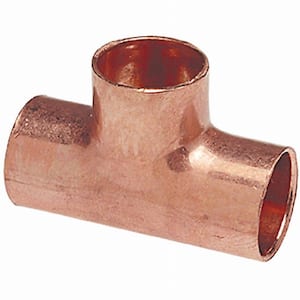Exactly How Copper Products Add To Lasting Practices in Different Industries
In sustainable power systems, for instance, copper boosts the functionality of solar and wind modern technologies, while its application in construction decreases waste via long life. As sectors look for to embrace more sustainable techniques, the duty of copper could prove pivotal in accomplishing environmental objectives.
Copper in Renewable Resource
Copper plays an essential role in the development of renewable resource innovations, offering as a vital conductor in numerous applications. Its exceptional electrical conductivity and resistance to deterioration make it a suitable product for electric wiring, which is vital in photovoltaic panels, wind generators, and energy storage space systems. In solar photovoltaic or pv systems, copper is used in the affiliations and circuitry, enabling reliable energy conversion from sunlight to power.
In wind power, copper is essential to the generators and transformers that convert kinetic energy into electrical power, making sure optimal efficiency and integrity. The demand for electric automobiles (EVs) is raising, with copper being a vital part in batteries, electric motors, and charging infrastructure. The change to EVs substantially boosts the need for copper, as these automobiles usually utilize 4 times much more copper than traditional interior burning engine automobiles.
As the globe looks for to minimize environment modification and transition to sustainable energy resources, copper's duty comes to be increasingly critical. The material not just improves the efficiency and toughness of eco-friendly energy systems but additionally supports the broader objective of minimizing greenhouse gas discharges and promoting a lasting future.
Eco-Friendly Construction Products
In the last few years, there has actually been a significant shift towards the fostering of environmentally friendly building and construction products in feedback to expanding ecological issues. This change is inspired by the demand for lasting options that decrease ecological footprints while preserving architectural honesty and aesthetic charm.
Copper, recognized for its durability and recyclability, has emerged as an essential gamer in this sector. It can be used in roofing, pipes, and electric systems, contributing to power performance and decreasing waste. Copper's longevity implies fewer substitutes over time, more improving its sustainability profile.
In addition, materials such as bamboo, redeemed timber, and reused steel are gaining appeal. These choices not just provide minimized environmental impact but additionally promote resource preservation. As building codes significantly highlight sustainability, architects and home builders are integrating these products right into their tasks, cultivating innovation in style.
The boosting adoption of eco-friendly building products reflects a more comprehensive commitment to sustainability in the constructed environment. By focusing on these materials, the building and construction market can significantly lower its carbon impact, straighten with governing criteria, and sustain a healthier ecosystem for future generations. This fad notes a critical action in the direction of a much more lasting future in building and construction.
Copper's Function in Healthcare
Current research studies have highlighted the significant duty of copper in healthcare settings, especially because of its antimicrobial residential properties. Copper surfaces have actually been revealed to minimize the visibility of microorganisms, consisting of bacteria and infections, by as much as 99.9% within a short period. This exceptional effectiveness makes copper an important material for high-touch surface areas in hospitals, such as doorknobs, bed rails, and IV posts, therefore contributing to boosted infection control actions.
Along with its direct antimicrobial results, copper additionally contributes in the broader context of health center sustainability (Copper Products). By including copper right into clinical devices and home furnishings, healthcare facilities can reduce the occurrence of healthcare-associated infections (HAIs), which not only enhances patient outcomes yet also reduces the expenses connected with extensive medical facility remains and added therapies
In addition, copper's sturdiness and recyclability line up with sustainable methods, enabling responsible resource monitoring. As medical care systems increasingly focus on both person safety and ecological stewardship, the assimilation of copper items is becoming a lot more widespread. This double advantage underscores copper's important contribution to a healthier, safer, and more sustainable health care setting.
Sustainability in Transportation

In addition, copper's toughness and rust resistance add to the long life of transport infrastructure (Copper Products). In rail systems, for example, copper parts boost the reliability and effectiveness of signaling and power systems, essential for minimizing hold-ups and energy consumption. In addition, copper's function in renewable energy systems, such as solar and wind, supports lasting transportation remedies by providing clean energy for electrical transportation choices
Investments in copper technology not only foster sustainability but additionally stimulate financial growth and work creation in eco-friendly markets. As markets make every effort to satisfy rigid ecological regulations, the application of copper items in transportation becomes a crucial approach in accomplishing sustainability goals and advertising a cleaner, a lot more efficient future.
Copper and Round Economy
As the world increasingly embraces sustainability, the duty of copper in the circular economic climate becomes ever before extra significant. Copper's innate buildings-- such as its conductivity, recyclability, and sturdiness-- position it as a key material in a resource-efficient economy. The circular economy aims to lessen waste and maximize source usage through recycling and check my site reusing materials, and copper excels in this respect.
The metal can be recycled indefinitely without loss of top quality, making it an excellent prospect for sustainable techniques throughout various markets, consisting of building and construction, electronics, and renewable resource. By recovering and recycling copper from end-of-life products, industries can significantly reduce the requirement for virgin products, thereby decreasing environmental effects related to mining and handling.
In addition, the assimilation of copper right into round economic situation frameworks not just preserves resources yet additionally promotes development. Services that focus on copper recycling add to a much more lasting supply chain, enhancing their competitiveness while straightening with regulatory demands and customer choices for eco liable products.
Conclusion
To conclude, copper products substantially contribute to sustainable methods across several sectors. Their important duty in improving renewable energy modern technologies, promoting eco-friendly building and construction materials, supporting infection control in medical care, facilitating lasting transport, and symbolizing the concepts of a circular economic situation highlights the adaptability and relevance of copper. By incorporating copper right into different applications, sectors can attain higher efficiency, minimize ecological effect, and align with international sustainability goals, inevitably fostering a much more lasting future.

Copper's exceptional conductivity makes it a favored product in electric car (EV) systems, enhancing energy efficiency and performance. Furthermore, copper's role in eco-friendly power systems, such as solar and wind, supports sustainable transport services by giving tidy power for electric transit choices.
Their necessary function in enhancing eco-friendly energy technologies, promoting eco-friendly building products, supporting infection control in healthcare, helping with lasting transportation, and personifying the concepts of view a round economic situation emphasizes the adaptability and importance of copper.